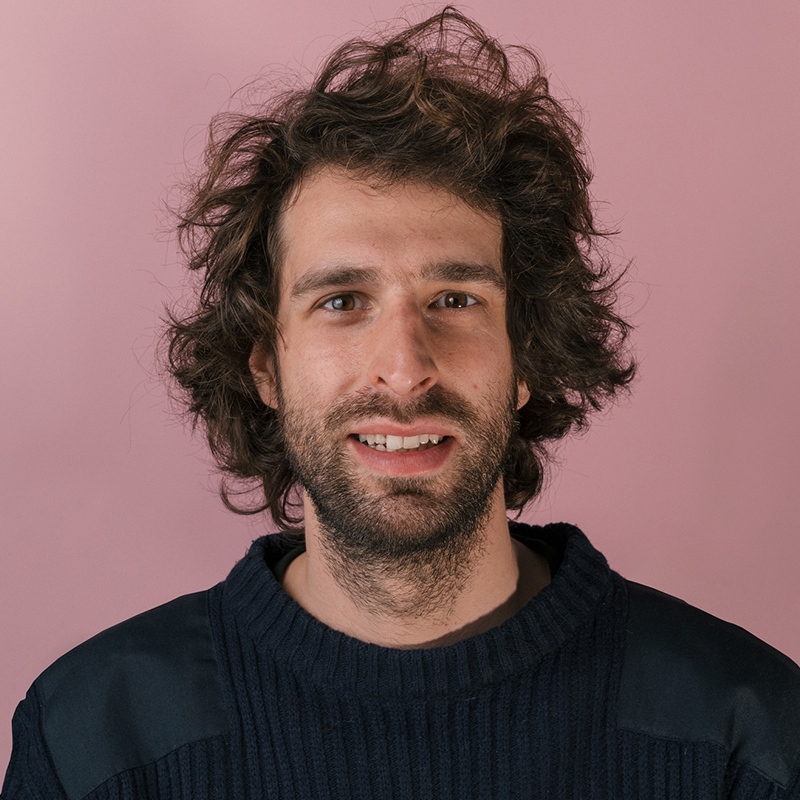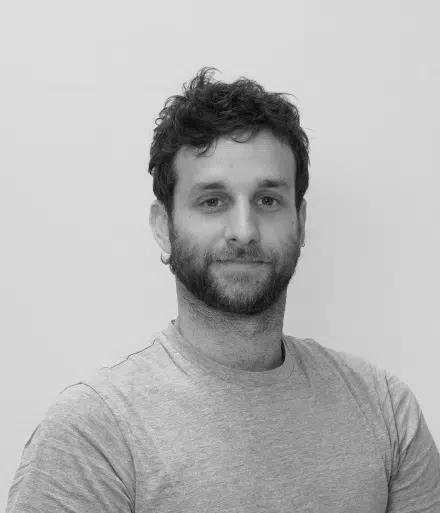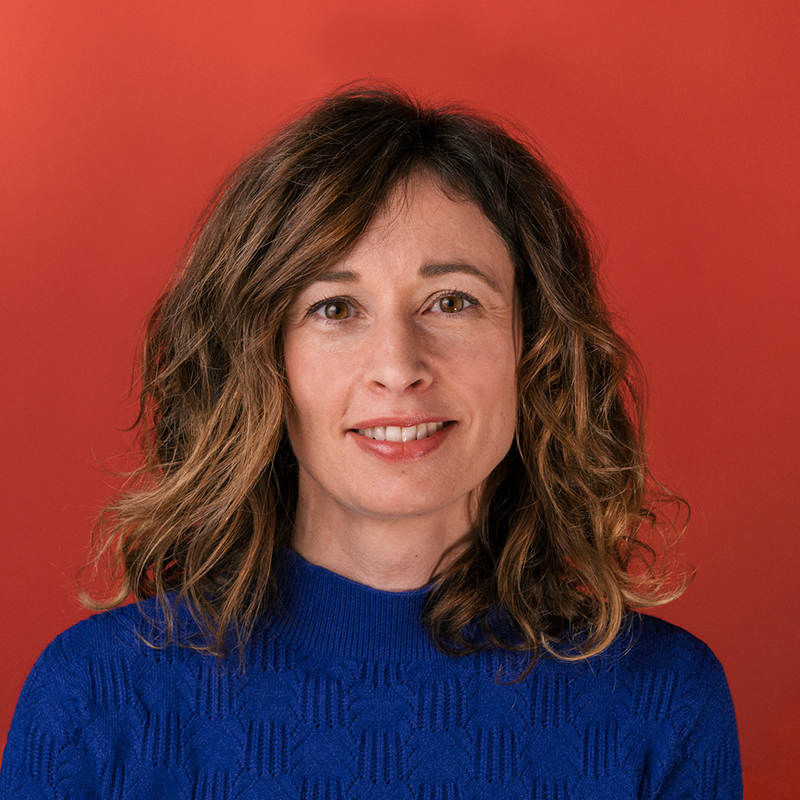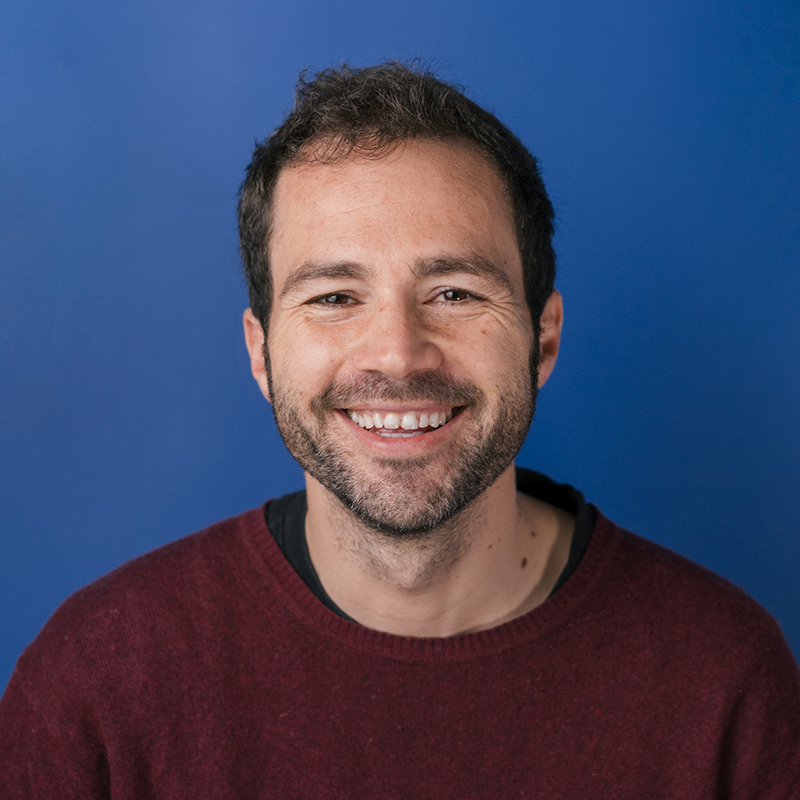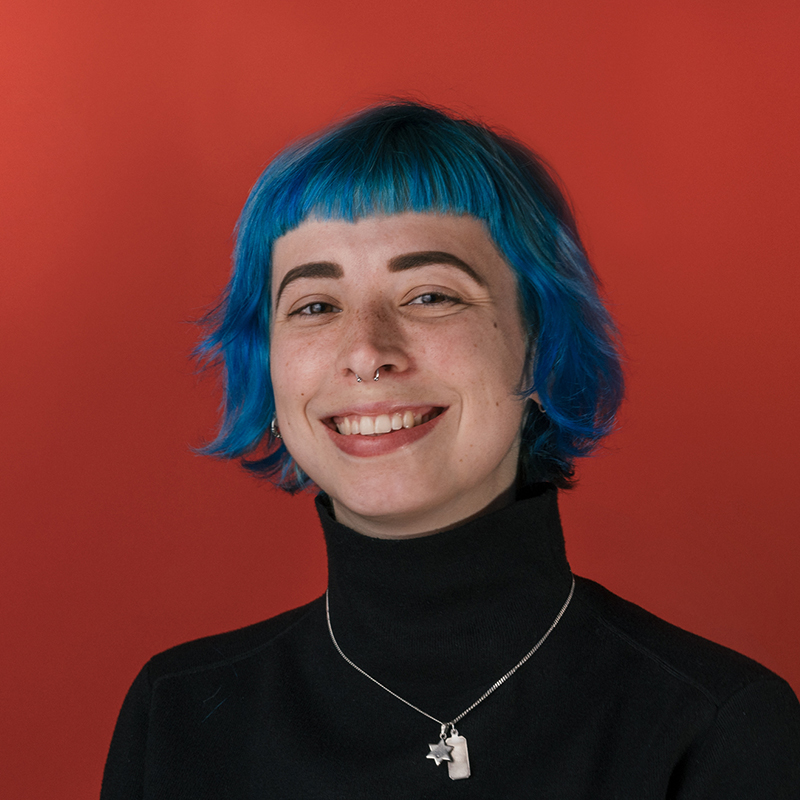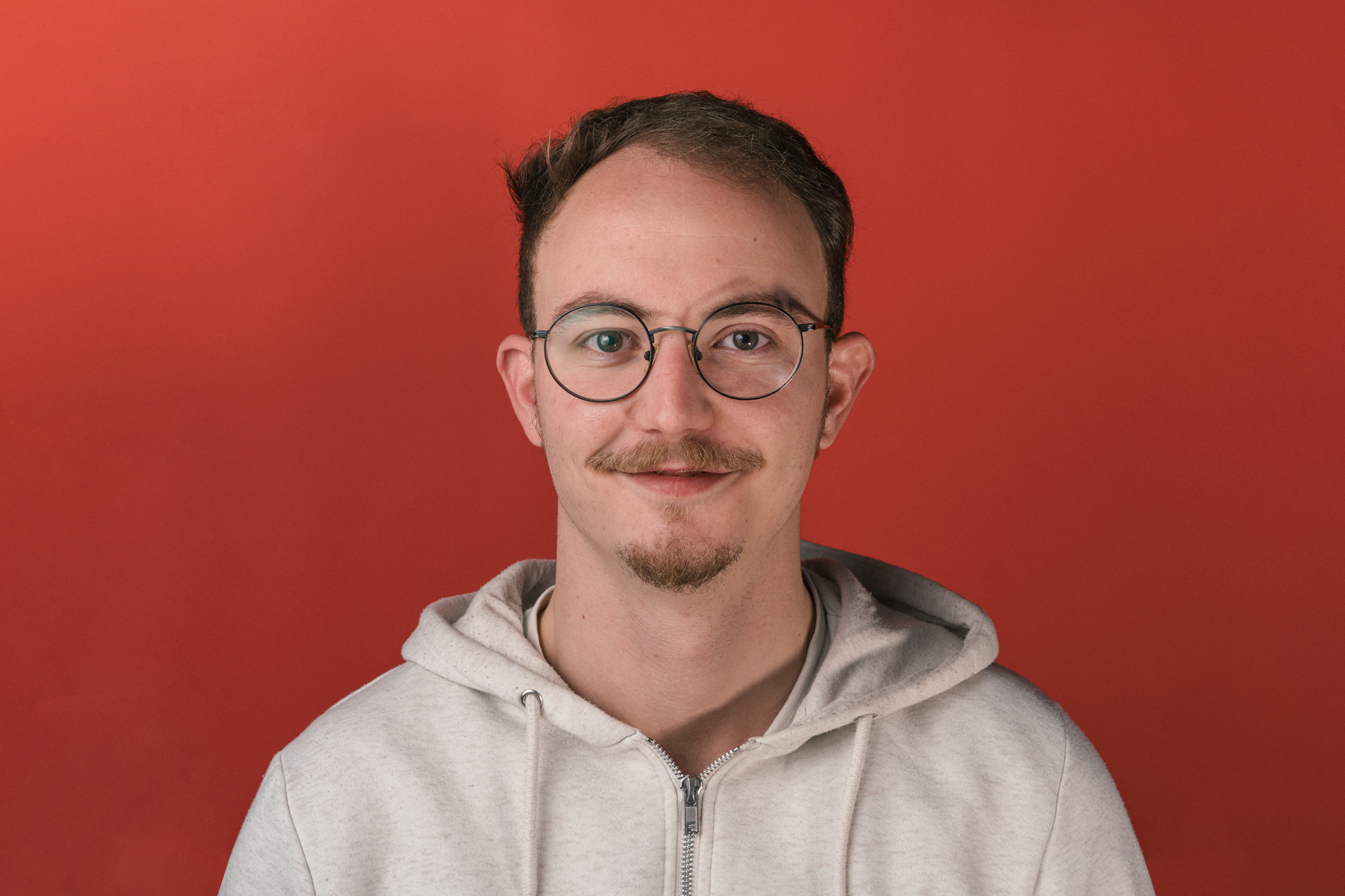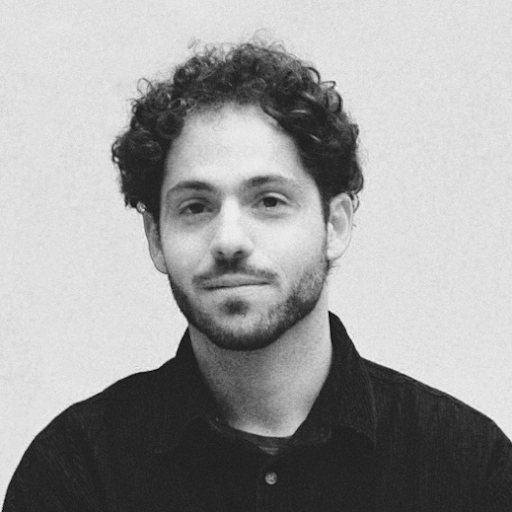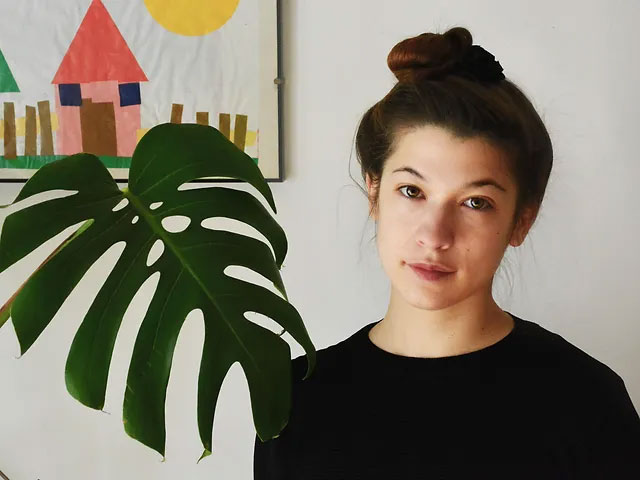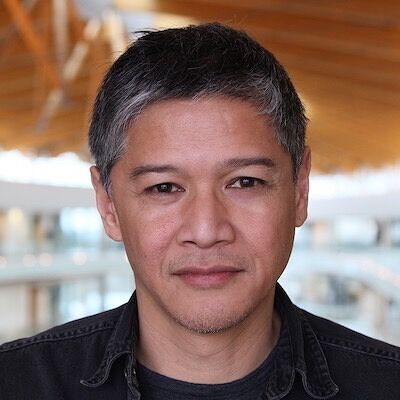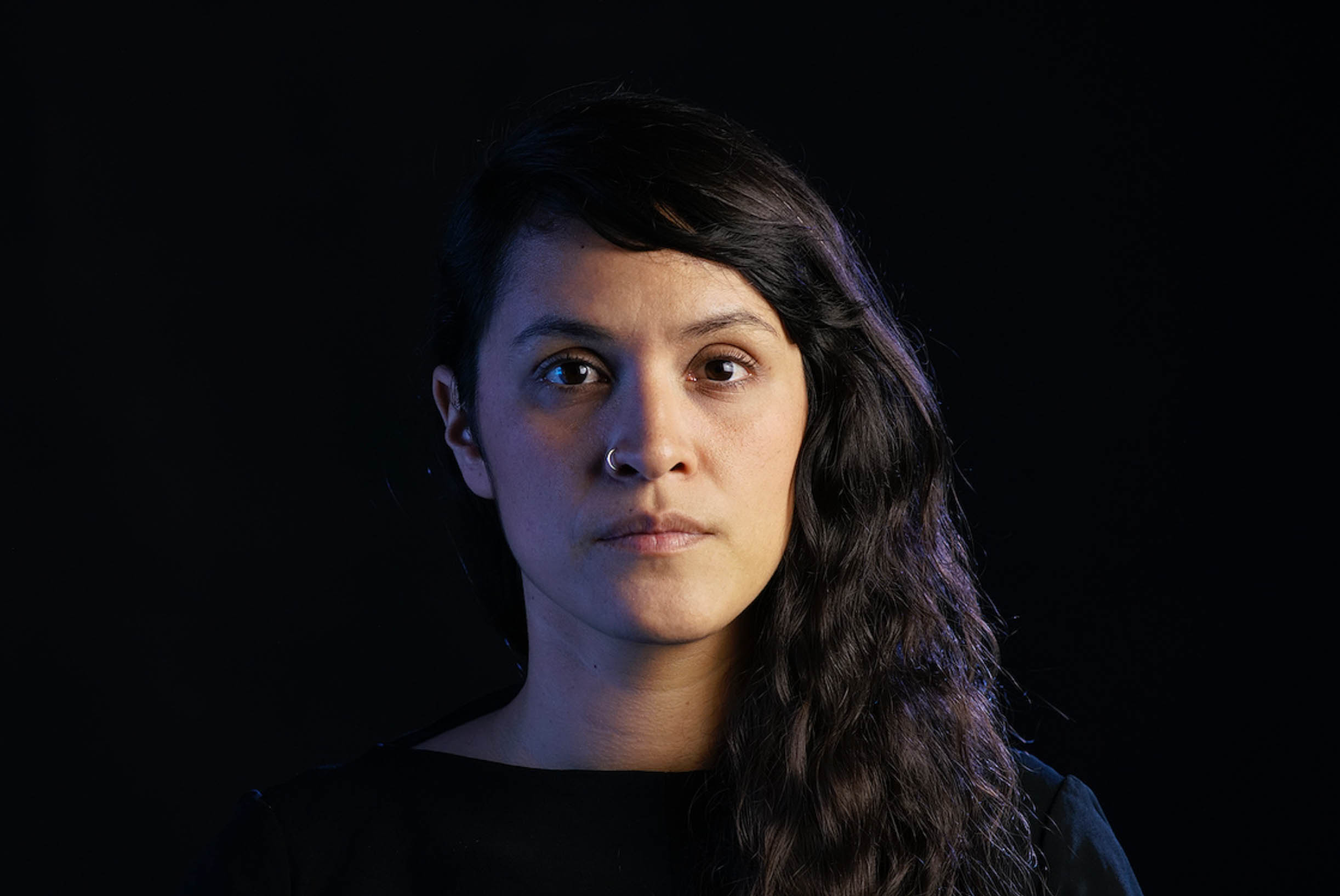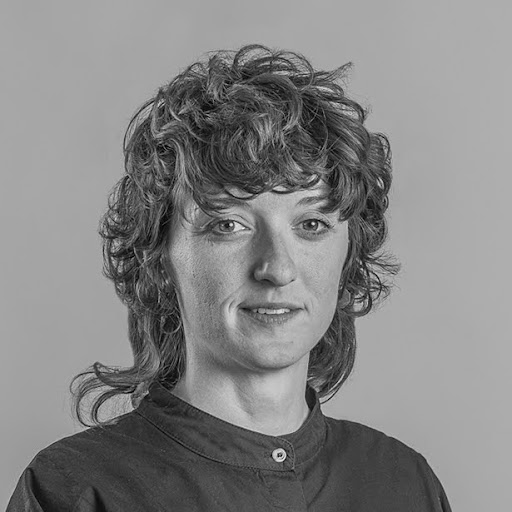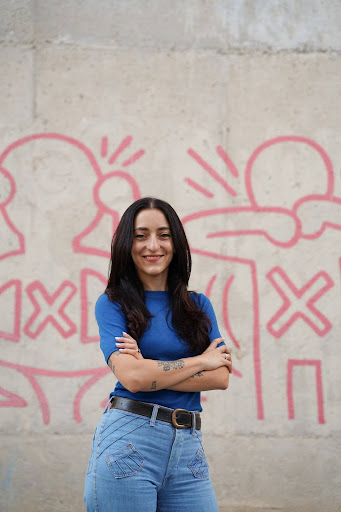Faculty
Guillem Camprodon is a designer and technologist working in the intersection between emergent technologies and grassroots communities. He is the executive director of Fab Lab Barcelona at the Institute for Advanced Architecture of Catalonia (IAAC), a benchmark in the network of over 2000 Fab Labs and home of the Distributed Design Platform. He has a passion for teaching and is the co-director of the Master on Design For Emergent Futures (MDEF), a collaboration between IAAC and ELISAVA. Previously, he led Smart Citizen, a platform that opposes the traditional top-down Smart City model, empowering communities with tools to understand their environment. As a former research lead, he participated in many European-funded research and innovation projects, such as Making Sense, iSCAPE, GROW Observatory, Organicity, DECODE, ROMI and Reflow.
Saúl Baeza is DOES and MAYBE Creative Director, VISIONS BY Founder and Editor-in-chief and VIBE content director. While lecturing at Elisava Barcelona University of Design and Engineering he also researches functional and digital identities as part of the “Making with..." Research Group (TU Eindhoven Research) and "Futures Now" Research Group (Elisava Research). Saúl is the co-director of the Master in Design For Emergent Futures (MDEF), organised by the Institute for Advanced Architecture of Catalonia (IAAC) and Elisava Barcelona School of Design and Engineering, in collaboration with the Fab Academy. Saúl has been visiting professor and lecturer at international universities, educational institutions and cultural venues such as Harvard GSD, Central Saint Martins and London College of Communication (UAL), Institute for advanced Architecture of Catalonia (IAAC), RMIT University Melbourne, Rhode Island School of Design, Pascual Bravo University in Medellín, Sónar+D, Victoria&Albert Museum, CCCB and DHUB, among others.
Chiara Dall’Olio is an Italian designer based in Barcelona. Architect and urban planner by training, she is currently the academic coordinator of the Master in Design for Emergent Futures and part of the Fab Academy global coordination team at Fab Lab Barcelona. She holds a Bachelor of Architecture from the University of Ferrara, Italy. Master in City and Technology degree for IaaC, Barcelona, and Master in Urban and Territorial Planning for UPM, Madrid. Chiara has professional experience as an urban planner on several scales, from regional planning to small urban interventions. She applies the culture of planning to different fields: design, education, and research.
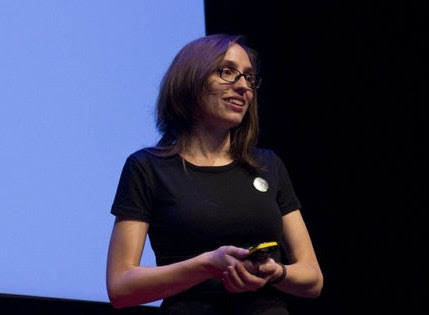
Nuria is a post-doctoral researcher at Complex Systems Laboratory at Universitat Pompeu Fabra (UPF) in the PRBB. She holds a major in Biology and a engineering in informatics and performed her research thesis about Biocomputation, that it is at the interface of both fields. Nuria teaches biology for architects, artist and designers of IAAC, Elisava or Massana universities and is a founder member of the DIYBioBcn, the first biohacking group of Spain.
Christian Ernst is a creative technologist with a background in UX design. After finishing degrees at Berlin University of Applied Sciences (HTW), he studied the Master of Design for Emergent Futures at the Institute of Advanced Architecture of Catalonia and subsequently at ELISAVA Barcelona. Through his speculative practice he approaches technology critically and question it through different lenses. Projects are ranging from technological investigation into AI to speculative furniture design and multimedia installations. His works and live in Barcelona.
Santiago Fuentemilla Garriga , is Master degree in Architecture and postgraduate in digital fabrication and rapid prototyping (Fabacademy). He accumulates more than 15 years of experience in studios (OPR, FHAUS, OPERA, Brullet de Luna associats), designing multidisciplinary projects at an international level. Since 2013 he is part of the IAAC - Fab Lab BCN team, as coordinator and leader of Future Learning Unit (FLU), an area of research, design and implementation of innovative educational models that promote growth, learning and creativity to generate opportunities to achieve the goals and challenges of uncertain futures. FLU participates in private and EU funded research projects such as TEC-LA, Shemakes, Ruractive, DOIT, Phablabs 4.0, Creative Minds, among others. He is director of the global academic programs Fab Academy and Fabricademy, in the Barcelona node, executive board of Fab Learning Academy, and faculty of the Master in Design for Emergent Futures (MDEF) and The Master in Design for Distributed Innovation (MDDI).
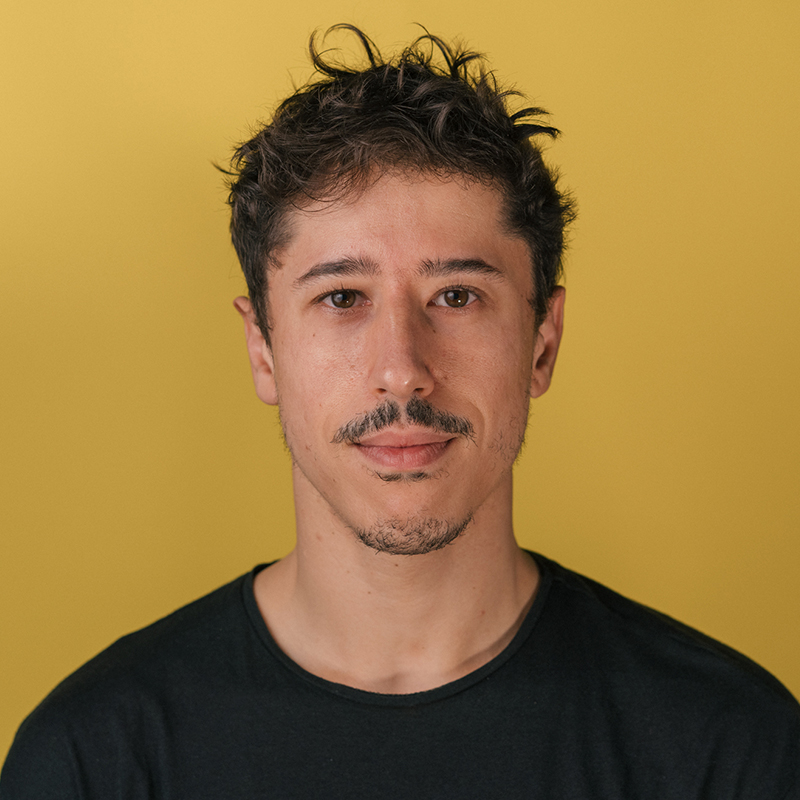
Oscar Gonzalez
Sense Making Expert
Óscar González is an Industrial Engineer based in Barcelona with expertise in data analysis, testing and calibration through his experience in automotive and sensor development. Óscar is the Sense Making lead at Fab Lab Barcelona team doing research and development within the Smart Citizen project and is an instructor at the Fabacademy program.
Jessica Guy is a designer and action researcher. Jessica’s work focuses on exploring participatory practices, community engagement and capacity-building activities in European research projects on a global and local scale. Jessica holds a Master degree in Design for Emergent Futures organised by the Institute for Advanced Architecture of Catalonia and Elisava Barcelona School of Design and Engineering, in collaboration with the Fab Lab Barcelona and Fab Academy. In the past, Jessica successfully graduated as an Industrial Designer (BA) at the Munich University for Applied Sciences and participated in the acceleration programme X-Futures by Fab Lab Barcelona. At Fab Lab Barcelona, Jessica is leading the global activities of the Creative Europe project Distributed Design Platform and co-leading the Erasmus+ Project Makeademy educational programme. Furthermore, they are the Make Works worldwide coordinator and lead of Make Works Catalonia. Jessica has contributed as a researcher to the European-funded projects Pop-Machina, CENTRINNO and REFLOW.
Born in Barcelona in 1995, Mikel has been doing art, graphic design and programming for video games and cinema until he discovered the amazing world of digital fabrication, the OpenSource community and makers to be related to different processes and characters of the sector. Until October 2021 he has been working as Manager of Fablab Barcelona, organising different things around the lab, including workshops, taking care of the machines, doing the necessary maintenance and teaching students not only how to use them but also how to become "makers". He has also been developing projects to empower people and communities to have access to technology in the most open way. When asked what he liked most about Fablab Barcelona he answers without a doubt: "Doing things" but "Doing open things". Since he left Fab Lab Barcelona in October 2021, he has been opening a new studio in Barcelona, called Facto, located in the Gràcia neighbourhood, where he has his own workshop and workspace for the development of projects, among which he is founding a design brand that works with recycled plastics.
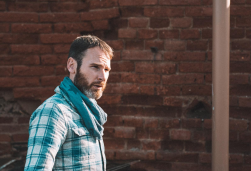
Jonathan Minchin studied Fine Arts and Design Craftsmanship and digital Fabrication. He attained BA in Architecture and a masters degree MSC in ‘International Cooperation, Sustainable Emergency Architecture’ in 2010. He is coordinator of the EU funded research project called ROMI (Robotics for Microfarms) and has spoken at the European Commission and British Parliament.
In this field he has worked on housing and development projects alongside ‘Habitat for Humanity’ in Costa Rica, ‘UNESCO’ in Cuba and with ‘Basic Initiative’ in Tunisia.
He has worked in conjunction with ‘UN-Habitat’ in Barcelona and holds a particular interest in appropriate technology, bioregional industries and agroecology. His professional career has focused on architectural and urban development projects with Architects Offices in both England and Spain and his writing on “Geographic referencing for Technology Transfer” was published in the book “Reflections on Development and Cooperation” in 2011. He took part in the Fab Academy, Bio Academy and Coordinated the Green Fab Lab and Valldaura campus between 2012 and 2017.
Jonathan has also worked on the on the DIYBio Barcelona project.
Pietro Rustici is a computer scientist with a background in robotics and design. After finishing degrees at Delft University of Technology (TU), he studied the Master of Design for Emergent Futures at the Institute of Advanced Architecture of Catalonia and subsequently at ELISAVA Barcelona. Through the speculative practice his approach technology critically and question it through different lenses. Projects are ranging from technological investigation into AI to speculative furniture design and multimedia installations. He works and live in Barcelona.
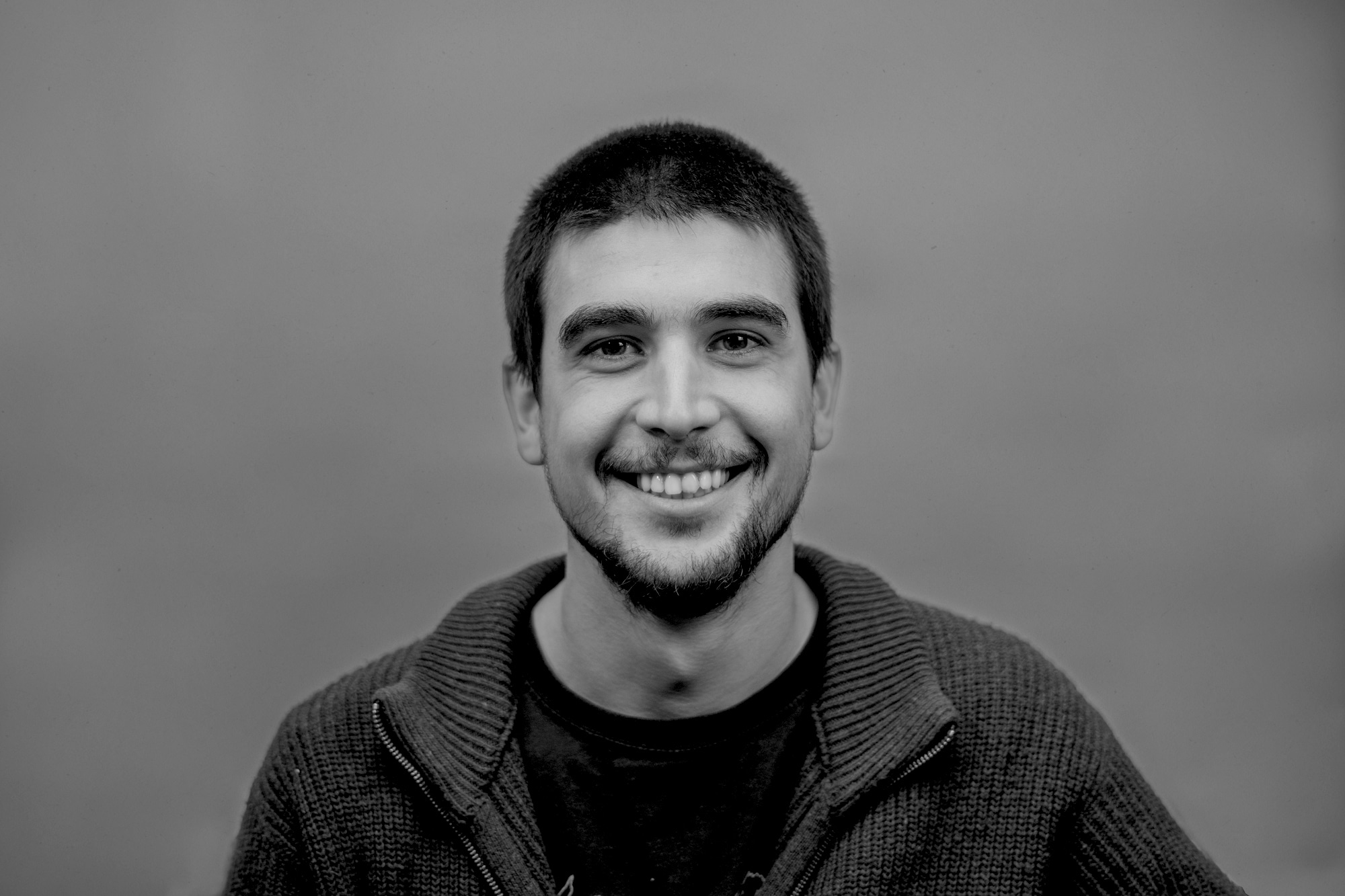
Adai Surinach
Digital Fabrication Expert
Adai graduated with a superior degree in engraving and stamping techniques at Llotja School of Art and Design in Barcelona. After graduation, he became interested in 3D printing, taking him to get involved in Fab Labs until becoming an intern at Fab Lab Barcelona. Shortly after, Adai undertook Fab Academy in 2022 and started working at the lab in different projects like Smart Citizen and as an instructor in academic programs.
Olga Trevisan is an Italian visual artist who graduated from I.U.A.V at the University in Venice and holds a Master’s Degree in Local Development from the University of Padua. Over the past ten years, she has been actively involved in European and international cross-disciplinary projects as an art and education facilitator and consultant, focusing on participatory practices and bottom-up strategies. One of her main focuses is to use arts and crafts to promote collaborative methodologies in local communities connecting them to global challenges. In 2022 she supported Centrinno EU project team and is now involved in Distributed Design and Dafne+ as EU Creative action researcher at IAAC | Fab Lab Barcelona.
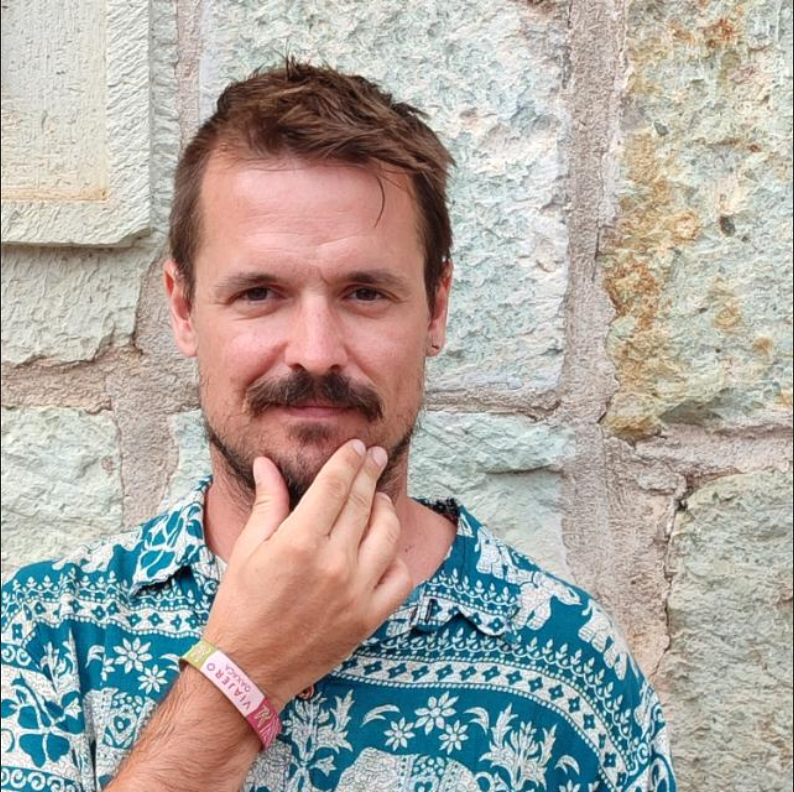
Daniel Mateos
Digital Fabrication Expert
Multidisciplinary maker and educator with skills in 3D design, 3D printing, metalworking, electronics, programming, biology, and extensive education experience. I have developed careers in the fields of biology, data science, and education. I am currently in transition to employment that uses my skills in digital fabrication, metalworking and electronics. I’m an extremely capable self-learner, very sociable and would love to integrate in a team with shared values to have an impact in the world, preferably at local scale.
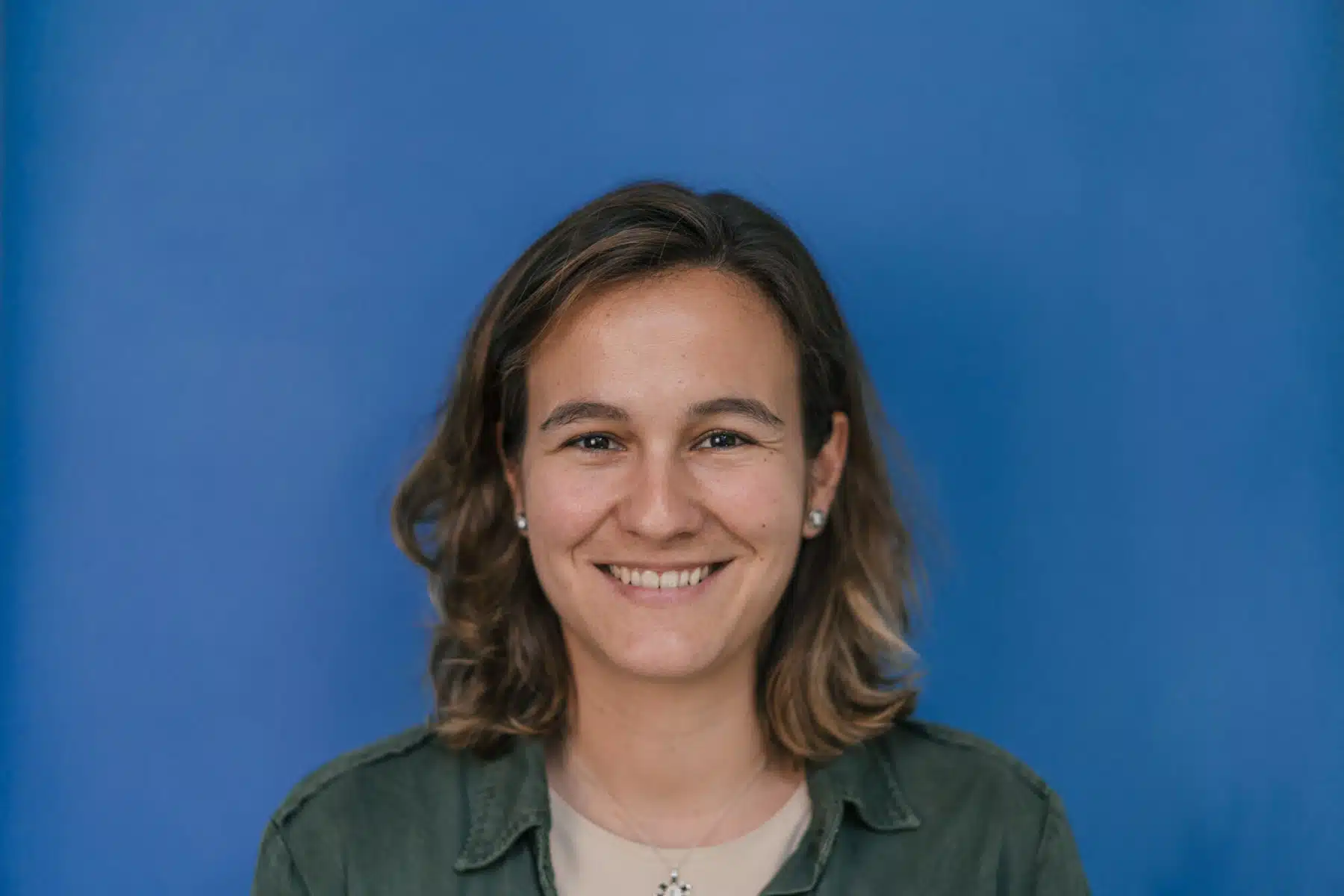
Julia Leirado Silva
Future learning expert
Julia Leirado is an architect based in Barcelona interested in educational innovation and how new technologies and digital fabrication tools can intersect with traditional education curriculum and their impact on improving the learning experience. She holds a Graduate Diploma in Architecture from the Polytechnic University of Catalonia (ETSAB), a master’s in Project Management (EAE), and a Fab Academy diploma in digital fabrication from the Fab Lab Network.
Ron Wakkary is full professor in the Future Everyday cluster. In addition, he is full professor at the School of Interactive Arts and Technology, Simon Fraser University in Canada where he is director of the Interaction Design Research Centre and founder of the Everyday Design Studio. Wakkary is interested in design-oriented human-computer interaction, tangible computing and the philosophies of technologies through design. Wakkary’s research investigates the changing nature of interaction design in response to everyday design practices in the home and new understandings of human-technology relations. He aims to reflectively create new interaction design exemplars, concepts, and emergent practices of design that help to shape both design and its relations to technologies. Wakkary considers people as integrally connected with technologies, and specifically as creators and makers rather than passive users or consumers of digital artifacts. He investigates how to design computational things that are radically simple, allowing ‘everyday designers’ to determine how these things fit into their lives and improve upon them. The big idea behind his work is that the artifacts and systems we design are resources rather than finished products. Wakkary has a background in interaction design, computer science and visual arts.
Citlali Hernández Sánchez is an Industrial Designer from the Centro de Investigaciones de Diseño Industrial (UNAM) and a graduate of the Master's in Digital Arts from Pompeu Fabra University in Barcelona. As an artist, her work explores the relationships between interaction and the moving body, using open technologies that she develops and manufactures herself. Her installations and performances have been presented at various international events and festivals, including the International Symposium of Electronic Arts (ISEA), Ars Electronica Garden Barcelona, Loop Festival, Live Performers Meeting, International Conference on Live Coding (ICLC), JustMad, among others. She collaborated with the digital art association Matics Barcelona (2016-2022) and is actually part of the creative coding studio Axolot.cat where she coordinates and produces cultural projects focused on electronic art and its intersections with critical thinking. Currently, she is preparing her practice based PhD centered on interactive systems, body and identity within contemporary transdisciplinary artistic practices. She also works as a specialist in design, digital fabrication, and interactive systems instructor at different academic institutions, applying these principles to design and the arts.
Architect, researcher and professor. PhD in Aesthetics and Theory of Arts. Her area of work is based on the critical transaction between politics, space and affect, with a special interest in the possibilities of direct action. In her professional career, she carries out projects that address heterogeneous architectural and artistic formats between temporary interventions in public space and socio-spatial practices of collaboration and mapping. She has been visiting professor and guest lecturer at universities worldwide and she has published both specialized articles and book chapters, mainly addressing counterdisciplinary strategies through direct action, cartographies, embodied exploration and performative criticality.
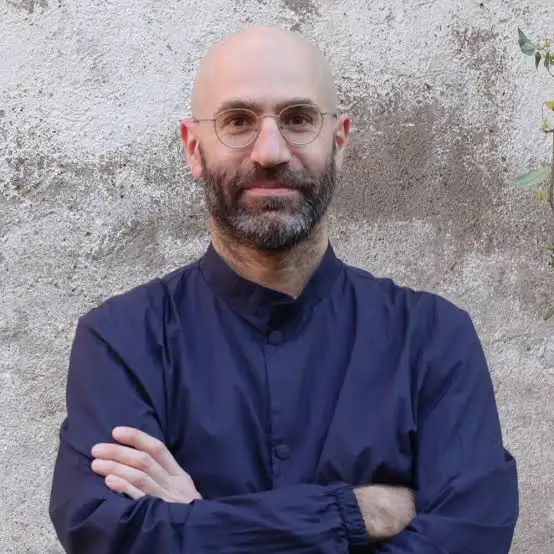
Lluis Nacenta
Music, technology, and science
Lluís Nacenta is a curator, musician, and researcher in the domain where music, technology, and science meet. He has a degree in Mathematics, another in Piano, a master’s degree in Comparative Studies in Literature, Art, and Thought, and a PhD in Humanities with a thesis on musical repetition. He was Head of Postgraduate Studies at EINA University School of Design and Art of Barcelona from 2015 to 2017, and director of the Hangar Visual Arts Research and Production Centre from 2018 to 2021. He has curated numerous exhibitions and he has recently published his first essay Càlcul de metàfores (Calculus of Metaphors, La Magrana, Debate, 2025), a series of reflections on the confluence of science and the humanities today.
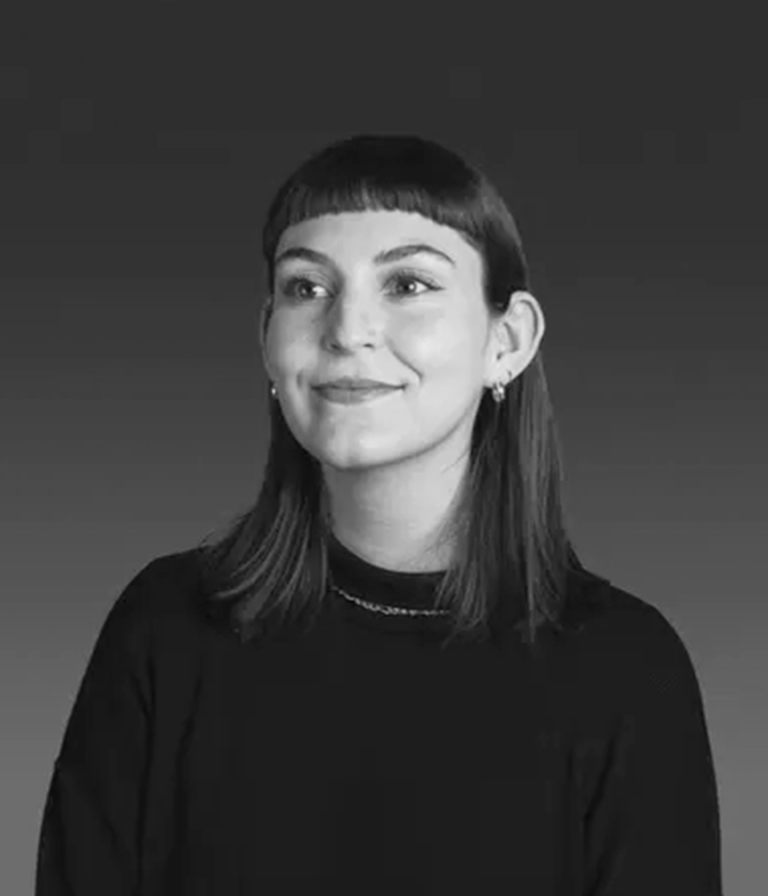
Marta Handenawer
Creative director and experience designer
Creative director and experience designer based in Barcelona. With a degree in Product Design and Industrial Engineering from Elisava, her work combines transmedia narratives, social interaction and art. She currently heads the creative department at Domestic Data Streamers, where she proposes storytelling alternatives and analyzes how people relate to information.
Much of his work focuses on thinking about the intersection between the challenges of the digital world and the physical world. In recent years she has worked with brands and institutions such as Google Arts & Culture, TED Talks, Nike, CCCB, Oxfam, Unicef, the Barcelona Design Museum and the National Museum of Estonia. Marta is also a professor at IACC (Institute of Advanced Architecture of Catalonia) and Elisava, where she directs the Master in AI Design.
Ane Guerra is a journalist, senior content writer and creative copywriter, university lecturer, radio host, scriptwriter, published author, translator, and storyteller with over 15 years of experience in various writing and communication fields. She has worked with national and international clients and founded a content agency, Agencia Letraherida. Ane is passionate about literature, feminism, and social justice, and in 2024, Forbes Spain recognised her as one of the 100 Most Creative.
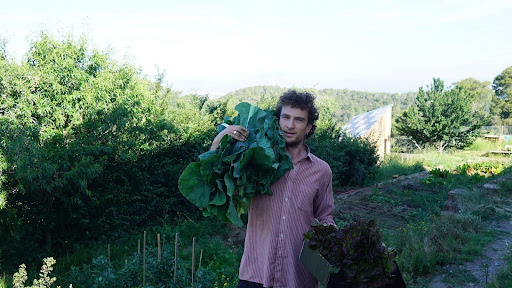
Olly Needham
Designer with a specialism in natural material building and digital fabrication
After 9 years in the design industry, he shifted his focus to Ecological Building and is a graduate of the MAEBB 2023-24 program. An alumni of the Ellen Macarthur foundation ‘From Linear to Circular’ program, Olly has collaborated with a variety of community growing and making projects, bringing his interests of growing, food, circular production systems, design, natural building and community engagement together. Olly is actively working in the Urban Agriculture network of Barcelona; designing and maintaining vertical, irrigated gardens in various locations in the city.
Olly will play an active role in the day-to-day management of the grow spaces at Valldaura labs, advancing the self-sufficiency of food within our community and connecting students to the produce they will grow, manage and prepare.
